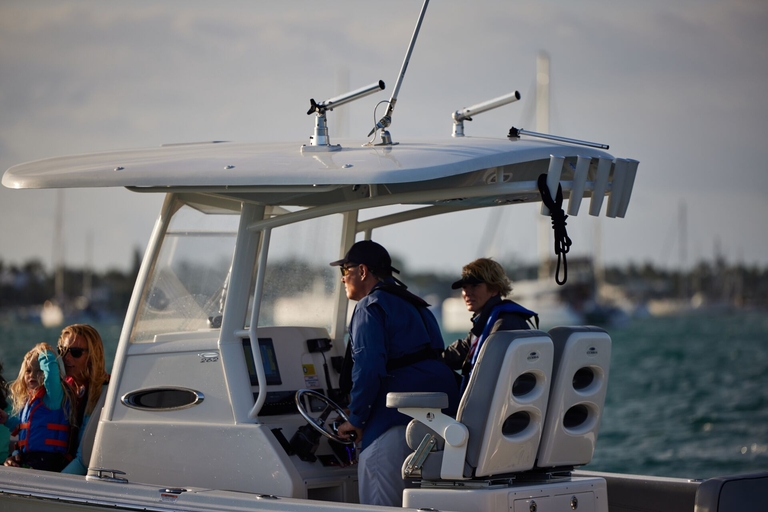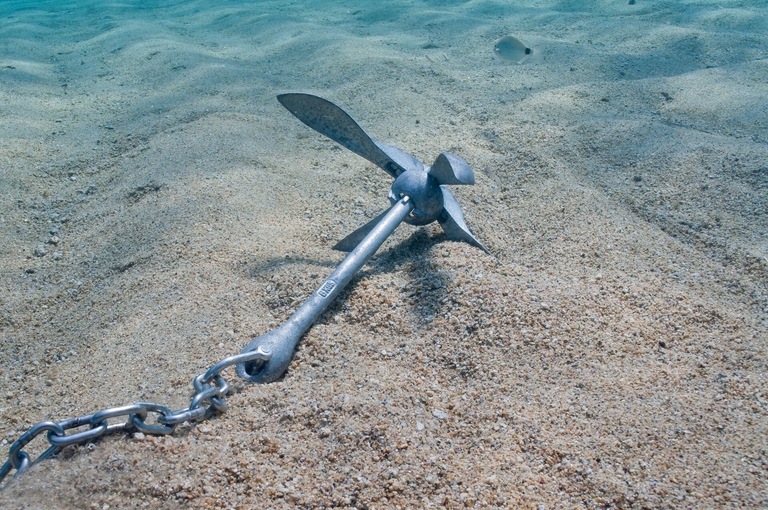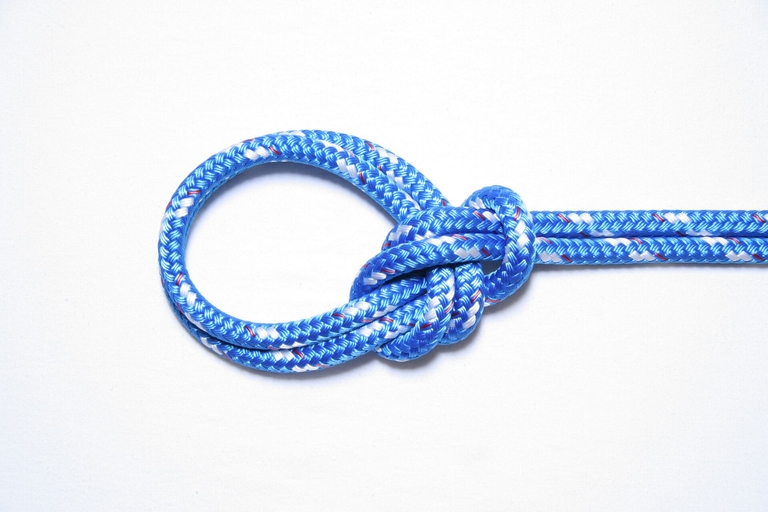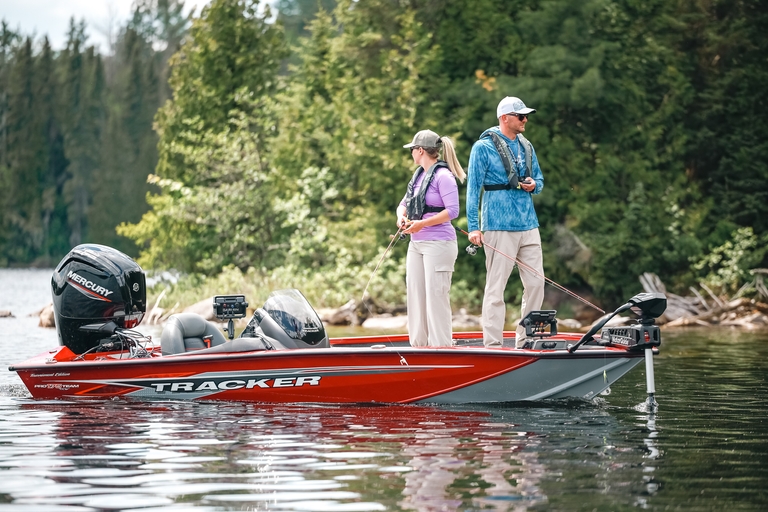The Dangers of Jet Skis (and How to Stay Safe)
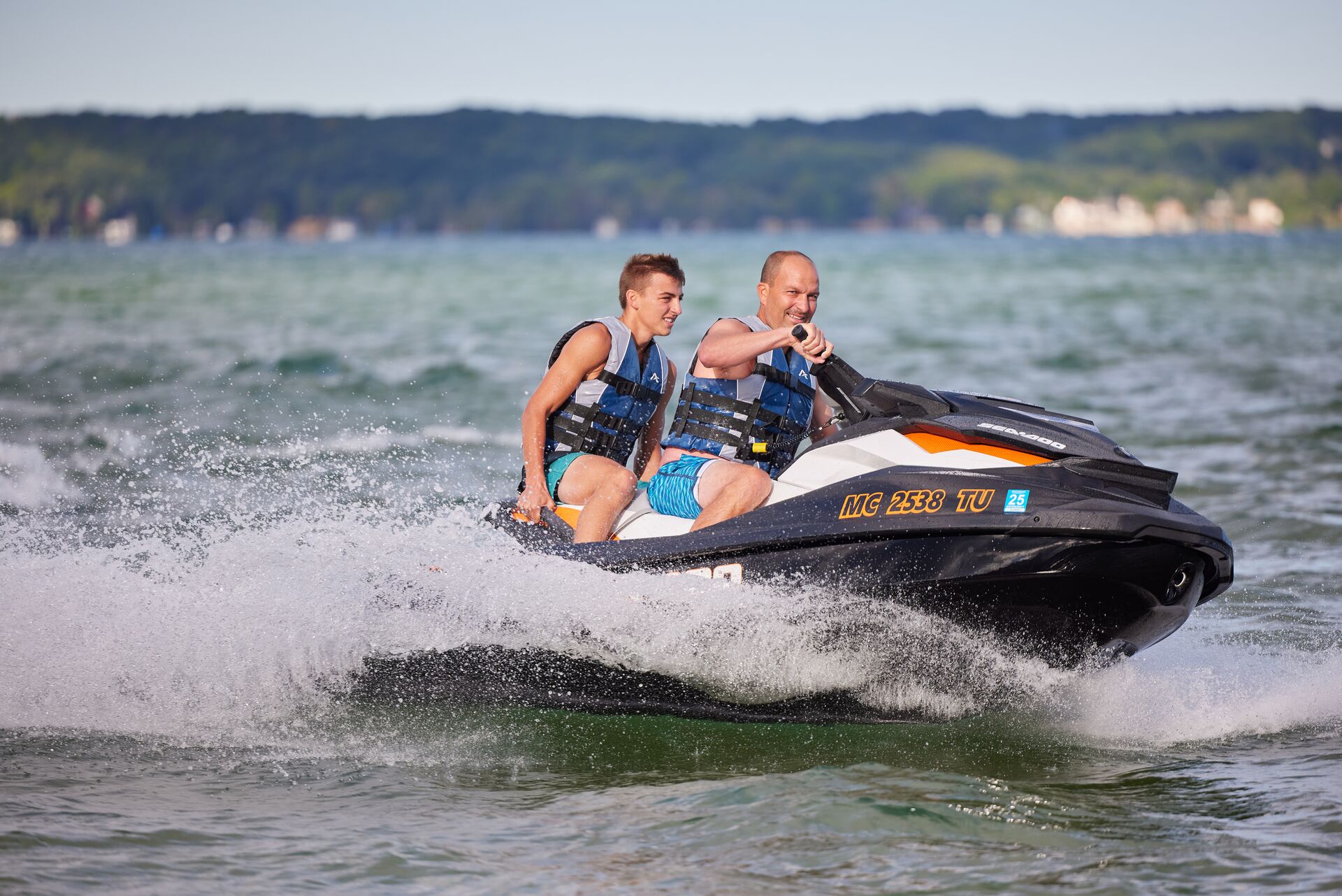
There are lots of great ways to enjoy the water, and the best way to do that is to choose something that works well for your specific needs and the things you like to do.
Some people enjoy spending the day fishing, for example, while others want to go fast across the water's surface or even rent a pontoon boat for a party or a relaxing day.
Jet skis (often also called personal watercraft or PWC) are one of the more exhilarating ways to enjoy the water, but they have significant risks that come along with them. Understanding the dangers and following safety guidelines can reduce risks and allow you more fun.
Here's what to know about PWC risks and how to keep yourself safe while playing.
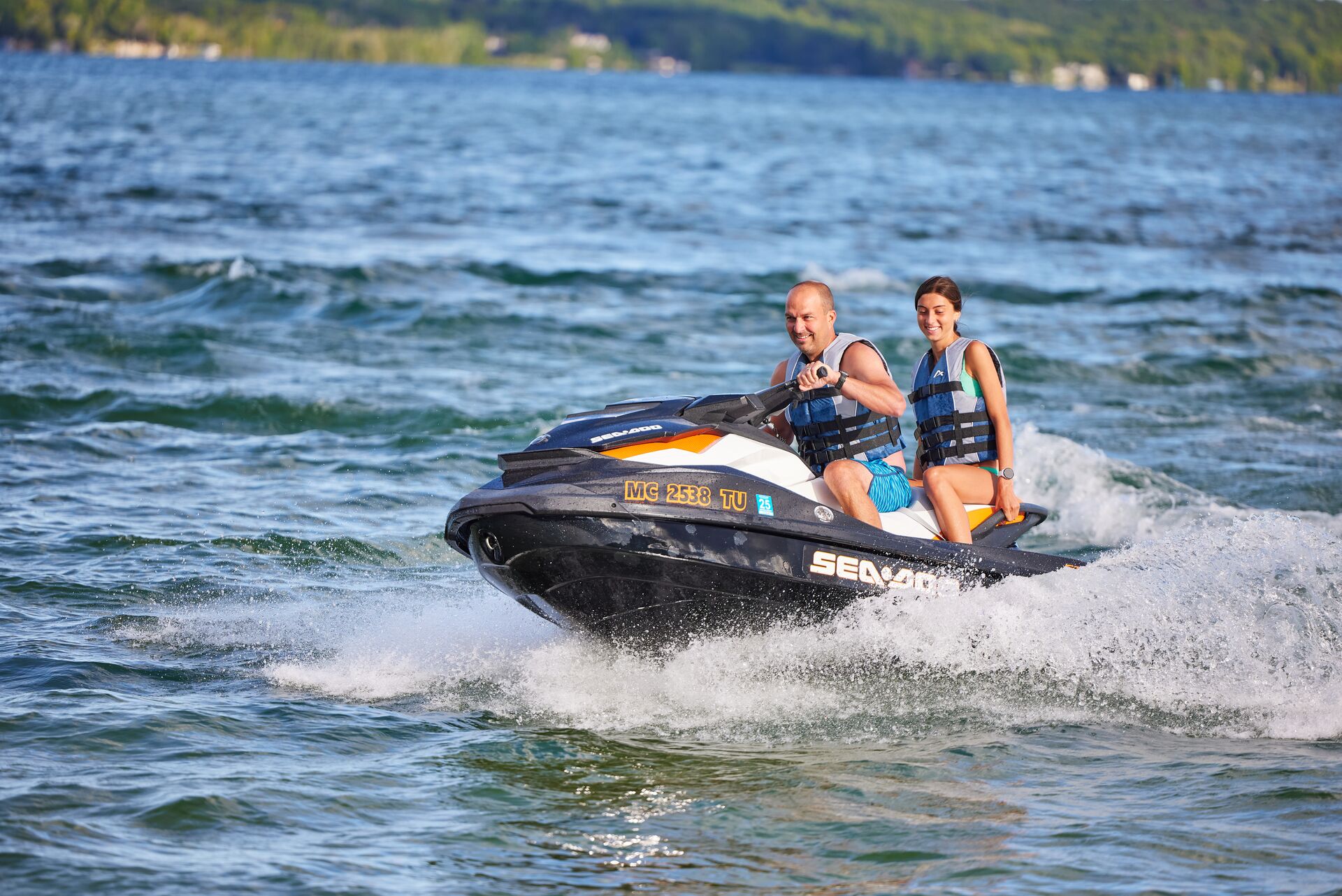
The Common Dangers of Jet Skis
While several things can go wrong when scooting across the water on a high-powered vehicle, there are a few common concerns to look out for. When you focus on protecting yourself from the most common scenarios, you'll be more likely to have a great time and feel safe doing so.
High Speed and Collisions
A personal watercraft can reach a high speed quickly, increasing your risk of losing control. This can lead to collisions with other vessels, stationary objects, or swimmers.
These accidents are relatively common and can lead to severe injuries, but the vast majority of them are also avoidable.
Lack of Protective Barriers
Unlike riding in a boat, riding on a PWC means you don't have protective barriers to help keep you safe. Think of it as similar to the difference between traveling in a car and riding a motorcycle.
Since you don't have the same level of protection around you, the risk of injury is higher in an accident.
Inexperience and Reckless Behavior
Many people who use a personal watercraft don't have much experience. They may buy one before summer starts and need time to get used to it, or they might rent one on vacation.
With that in mind, they may not know how to handle the PWC correctly if they're new to these vessels.
Additionally, reckless choices such as speeding near swimmers, jumping wakes, or making sharp turns at high speed can also lead to accidents.
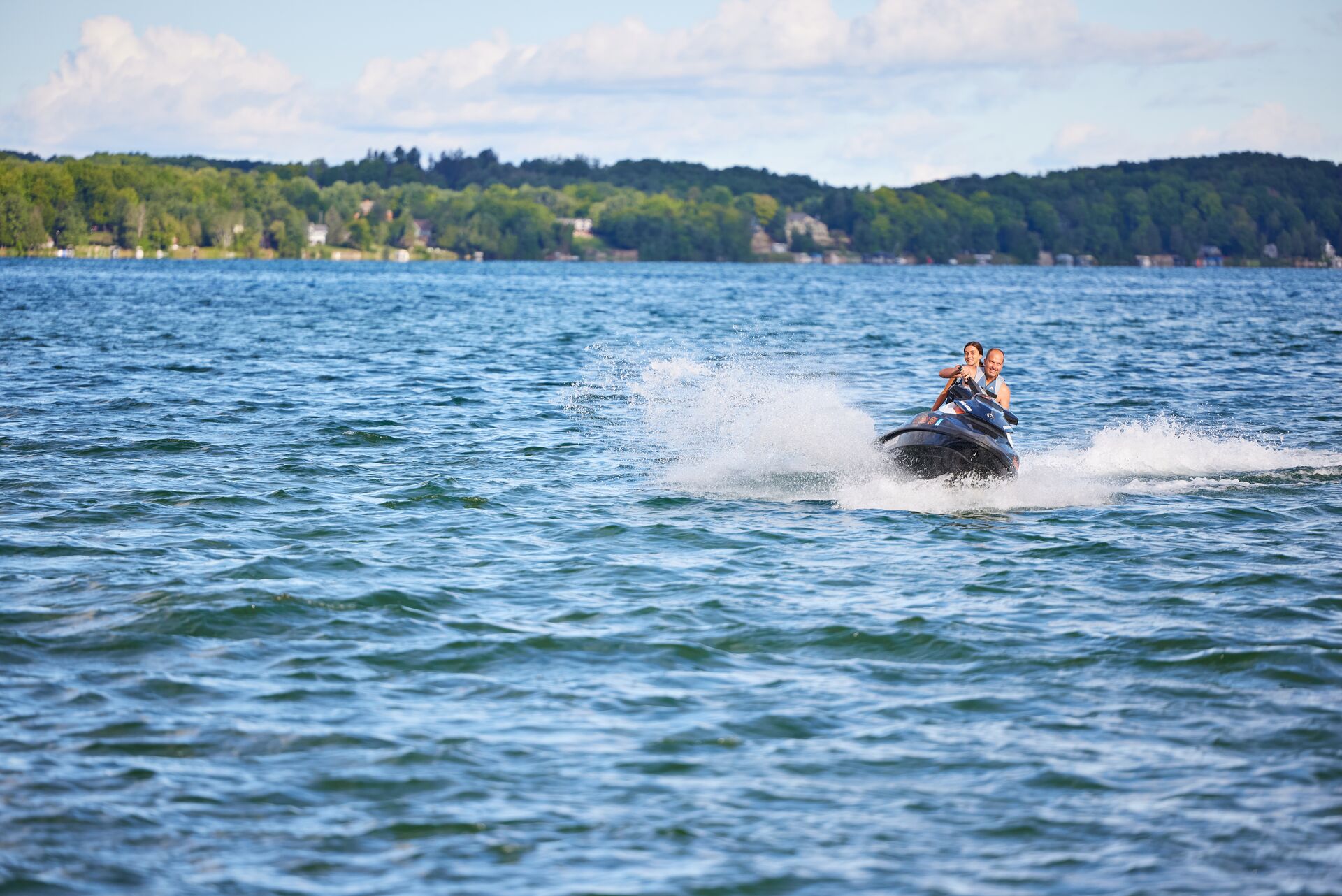
Weather and Water Conditions
Before you head out on a PWC, it's important to check the weather and the tide tables.
Due to their small size and other factors, jet skis can be more vulnerable than boats, so you'll want to avoid high winds, rough waters, and unexpected weather changes. You could also be at risk from waves and wakes from larger boats nearby.
Mechanical Failures
Even if you take really good care of your watercraft, it could still break down.
Engine failure or steering problems can leave riders stranded and may also cause an accident. Sometimes, these kinds of issues happen suddenly, but reducing your risk and remaining mindful can help reduce the potential for your jet ski to break down.
Alcohol and Drug Use
If you operate a personal watercraft while under the influence, you could be adding to the risk of accidents for yourself and anyone around you.
That's because alcohol and drugs impair judgment and reaction times, which can lead to dangerous situations that are hard to avoid or get out of effectively.
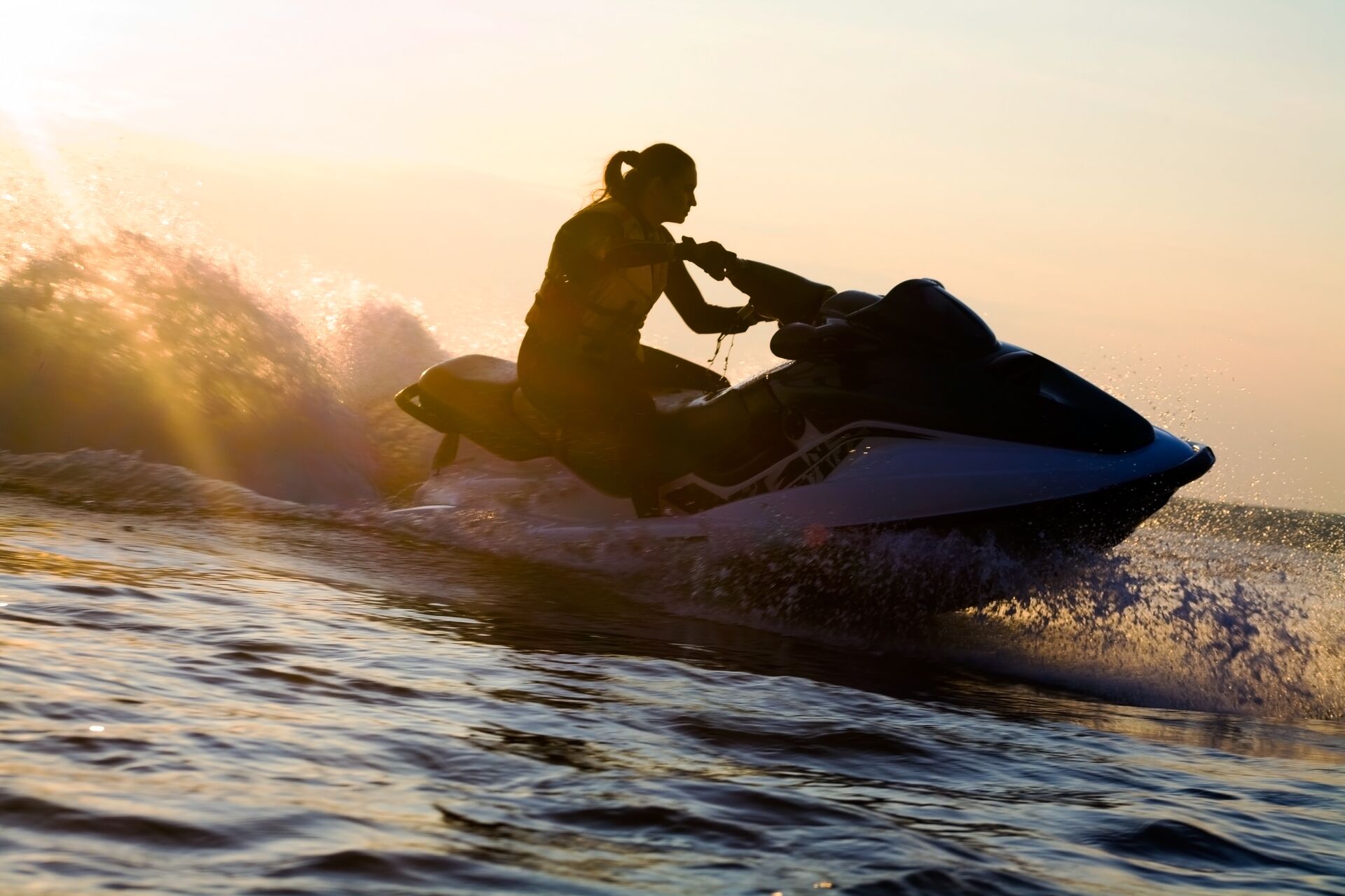
Safety Tips for Jet Ski Users
The best thing you can do to stay safe when using a jet ski is to follow some essential tips and guidelines. These can make it easier to protect yourself and reduce the chances of an accident or other serious event.
Do the following to enjoy your time on the water and increase your peace of mind.
- Take a Boating Safety Course: Enroll in a certified boating safety course to learn about safe operation, navigation rules, and emergency procedures.
- Wear a Life Jacket: Always wear a properly fitted life jacket that's U.S. Coast Guard-approved.
- Check Equipment Before Use: Inspect your PWC for mechanical issues or damages before getting on the water.
- Understand Local Laws and Regulations: Make sure you know the speed limits, no-wake zones, and other local area waterway laws.
- Maintain a Safe Speed and Distance: Operate your PWC at safe speeds, especially in a congested area, and stay a safe distance from swimmers and other vessels.
- Avoid Alcohol and Drugs: Don't operate your watercraft if you've had alcohol or drugs because it can impair your judgment and reaction times, putting yourself and others at risk.
- Be Mindful of Weather Conditions: Check your local weather forecast before going out, and stay out of the water if bad weather or other adverse conditions are predicted.
- Use the Kill Switch Lanyard: Attach the kill switch lanyard to your life jacket or wrist so the PWC stops if you fall off.
- Ride With a Buddy: It can be more fun to ride with a friend, but it's also essential to have a companion so they can help you in case of an emergency.
- Stay Aware of Your Surroundings: Scan the water for obstacles, other boats, and swimmers to avoid them and reduce accident risk while having fun.
These ten tips are the most important ways to protect yourself and others when you're out on the water. Following them increases your chances of having a safe and enjoyable time on your personal watercraft.
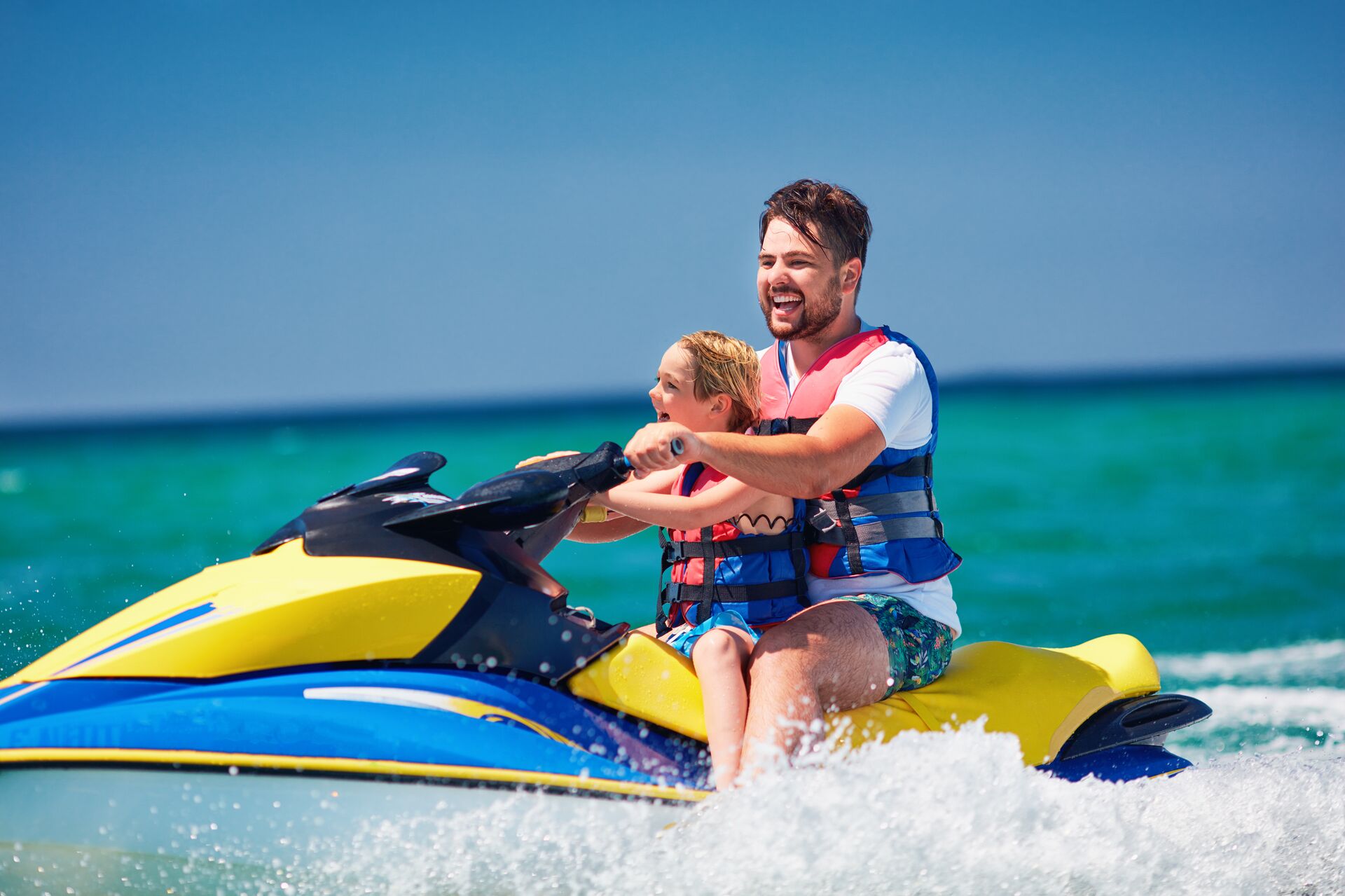
Learn More About Safety on Jet Skis with Boat-Ed
While we've covered some essential tips for staying safe when riding jet skis, there's much more to know about being safe when operating a PWC or boat on the water.
So, before you head out on the water, take an online boating education course through Boat-Ed. It's an important step that can reduce your risk of accidents and injuries, so you can have a better time with friends or family when you spend the day on the water.
We want you to have more safe adventures on the water every season! So, choose the course for your region and start learning. You'll be glad you did!
You'll also have your boating education card after passing the final exam — a requirement for operating vessels with a motor in most states.

